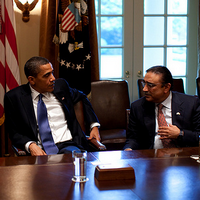The United States and Pakistan have sustained a decades-old partnership on the strength of a Cold War alliance and a set of narrow but shared vital interests. However, the relationship has undergone profound changes as a result of the Afghan War, which on one hand has forced the two countries into an awkward but necessary embrace, and on the other exposed deep and potentially irreconcilable differences.
At the core of this rift is Pakistan's duplicitous regional strategy, whereby Islamabad provides critical logistics and intelligence support to America while aiding or turning a blind eye to its extremist enemies. For years this provoked barely a whimper of protest from Washington, which was fearful of criticizing its volatile ally. That is now changing. In public statements and leaked accounts, the Obama administration, Congress and the U.S. military have demonstrated a profound evolution in thinking about Pakistan.
Secretary of State Hillary Clinton, for instance, told a congressional committee in 2009 that Pakistan "poses a mortal threat to the security and safety of our country and the world." President Barack Obama, we learned from Bob Woodward's "Obama's Wars," thinks his administration needs to "make clear to people that the cancer is in Pakistan." Even Pakistan's most ardent defenders in the administration are showing signs of fatigue. Adm. Mike Mullen, chairman of the Joint Chiefs of Staff, who on more than 20 trips to Pakistan has always portrayed the relationship in a favorable light, recently raised eyebrows by publicly accusing Pakistan's military intelligence apparatus, the Inter-Services Intelligence (ISI), of having "a longstanding relationship with the Haqqani network," a ruthless Taliban ally. Such openly expressed criticisms from top American officials would have been heresy just a few years ago.

